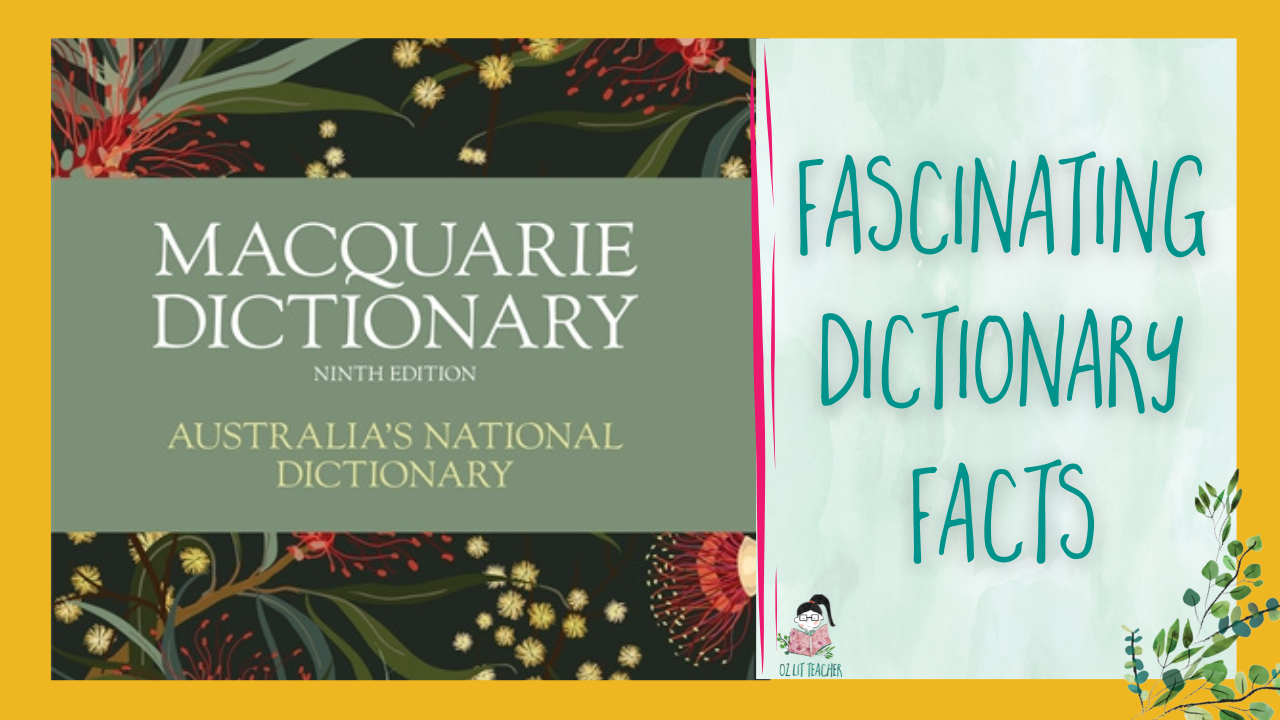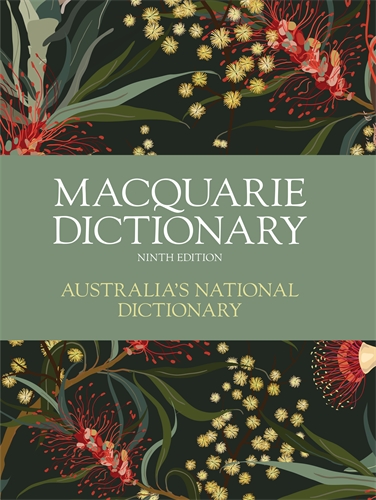
Fascinating Dictionary Facts
May 11, 2025A few weeks ago, I shared something in my fortnightly newsletter that was a surprising hit... a pile of fascinating facts about the dictionary! It made me so happy to know that I am not alone in my obsession with words and dictionaries! Because it was such a hit, I thought I’d reshare this post on my blog for anyone who may have missed my newsletter. (Note: Click here to sign up to my newsletter list and earn yourself a free copy of my famous mentor text list.)
For a bit of background, I loved the dictionary as a kid (it was the only present I asked my grandfather for when I was a teenager), but that fascination was taken to the next level after reading Pip Williams’ historical fiction, The Dictionary of Lost Words.
When I found out that there was a book explaining the ins and outs of how Australia’s first national dictionary -the Macquarie- was constructed, I just had to read it!
I introduce to you (and your inner word nerd): More Than Words: The Making of the Macquarie Dictionary by Pat Manser.
How did Australia’s first dictionary come about?
In 1969, book publisher Brian Wheldon, owner of Jacaranda Press (the company that published the famous Jacaranda Atlas collection for schools), decided that there should be a dictionary solely dedicated to Australian English. Up until that point, Australians had to rely on the Oxford (UK-based) and Webster (US-based) dictionaries, which Wheldon believed only gave a cursory glance at Australian words and their uses.
He assembled a small team of linguists and challenged them to have the dictionary ready for publication within just two years!
Wheldon wanted the dictionary to be ‘aggressively Australian’. He also wanted it to reflect the way Australian English was currently being used, rather than how it ‘should’ be used. This was a point of difference with most other dictionaries of the time.
Australia’s first national dictionary, the Macquarie Dictionary, was eventually published on September 21st 1981, twelve years after the idea was first conceived. It is now up to its ninth edition (see the image), with the most recent release being published in 2023. Isn't it beautiful?!

Some fascinating dictionary facts:
- It was called the Macquarie Dictionary because the early construction work became a research project based at the Macquarie University in Sydney.
- To kickstart the production, the Macquarie team purchased a bank of words from an existing dictionary database. The dictionary team then had to painstakingly review every single word -and its description- for its relevance in Australian English. What an enormous job!
- It was decided that swear words would be included in every edition of the dictionary, as these reflected the real language that was being spoken at the time. They were, however, removed from the school versions of the dictionary (much to the chagrin of high school students across the country).
- Australians appear to have a unique relationship with the word ‘fuck’. In the dictionary’s second edition, there were 14 different definitions given for this word, whereas the latest edition offered 27 different uses!
- Australians also seem to be obsessed with the word ‘dog.’ In the 2nd edition, there were 23 uses provided. E.g.: dogged, hot dog, let sleeping dogs lie. Whereas, 35 uses were shared in the most recent edition, including: the black dog, dog eat dog, and get a black dog up ya.
- The Macquarie Dictionary was the first dictionary in the world to use the phonetic alphabet to show the pronunciation of each word. This has since been adopted by other dictionaries.
- A Braille version was published in 1992. It was the biggest Braille transcription ever undertaken at the time.
- The key test for a word and its inclusion is its currency. Is the word accepted by the language community? Is it used extensively? Is it well supported by citational evidence? New words that have passed this test and have been added to the most recent edition include: coercive control, infodemic, Omicron, pyrocumulonimbus, range anxiety, Teal and truth-telling.
So, there you have it. I sincerely hope one of these facts helps you at a trivia night in the future!
Related Blog Posts
References:
- Manser, P. (2021). More than words: The making of the Macquarie Dictionary. Pan Macmillan Australia.
Sign up to our mailing list
Join our mailing list to receive the latest news, updates and resources from Oz Lit Teacher.
We'll even give you a copy of our mentor text list to say thanks for signing up.


